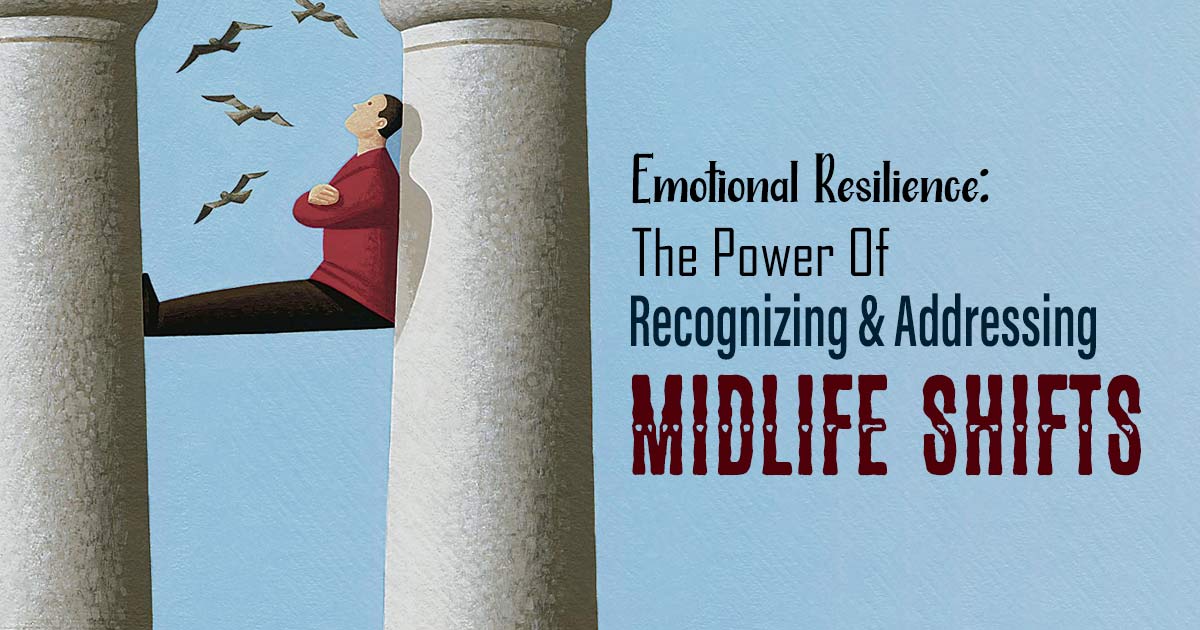Midlife crisis is a psychological phenomenon that is characterized as a period of self-examination, reappraisal, dissatisfaction, and anxiety experienced by middle-aged people (40-60 years of age). However, this stage may also occur before or after that age bracket. It has a great impact on one’s mental health—resulting in emotional distress and changes in behavior, values, and life’s trajectories.
Is Midlife Crisis A Real Mental Health Disorder?
Midlife crisis is not classified as a distinct mental health disorder. Rather, it’s a psychosocial phenomenon marked by emotional turmoil and self-reflection often occurring in one’s 40s or 50s. While it shares elements with mental health challenges, like stress and anxiety, it lacks specific diagnostic criteria.
Instead, it represents a normal, albeit challenging, phase in life where individuals reassess goals and values. Recognizing midlife crisis as a natural part of the human experience allows for a more nuanced understanding, emphasizing the importance of support, self-reflection, and coping mechanisms during this transitional period.
Symptoms Of Midlife Crisis
Studies attribute the common symptoms of midlife crisis to the following:
- Having existential reflection and observable wanderings. This includes questioning one’s identity and purpose in life.
- Dissatisfaction about love, career, and personal accomplishments and relationships.
- Anxiety and stress about the future, death rate, and unfulfilled dreams.
- Impulsivity in making major life changes without looking back or thinking twice.
- Display of risky behavior like indulging in extramarital affairs, spending spree, drastic career transitions, etc.
- Trying new tastes, challenges, or interests in life.
- Attempting to do things associated with young people.
- Experiencing strained relationships and other personal issues.
- Undergoing physical changes in appearance, attire, or how someone keeps fit.
How Does Midlife Crisis Impact Mental Health?
Midlife crisis is characterized by a sense of existential questioning, dissatisfaction and yearning for change. Its impact on mental health is complex, ranging from high stress levels to increased susceptibility to mental disorders like depression as well as anxiety.
In the middle years of age, one may feel unfulfilled, regretful and also very much aware of mortality. The need to re-evaluate life choices and societal demands often lead to severe psychological problems. Emotional turmoil, identity crisis, and a fear of missing opportunities lead to discomfort that affects mental health.
Why Do We Need To Recognize Midlife Crisis?
Knowing that one is in a midlife crisis is important for many reasons. Initially, knowing and recognizing this stage assists people in overcoming its challenges with more strength. It is always better to identify the signs early on, so that preventive measures can be taken before any complications of mental health occur.
Secondly, midlife crisis has often been minimized or misunderstood as a stereotype—thereby isolating sufferers even more. Raising awareness on the validity of these emotions creates sympathy and understanding rather than encouraging contempt towards those experiencing middle-age psychological issues. Recognizing and acknowledging a midlife crisis allows individuals to talk freely about mental health, thus promoting social care and kindness as well.
Addressing Midlife Crisis For Sound Mental Health
Addressing midlife crisis involves a combination of self-reflection, emotional support, and professional guidance. Encouraging individuals to engage in introspective practices, such as mindfulness or journaling, can facilitate a better understanding of their desires and fears. Building a strong support system, comprising friends, family, or even mental health professionals, provides a crucial foundation for navigating the challenges of midlife.
Professional counseling or therapy can offer tailored strategies for coping with the emotional upheaval that often accompanies midlife crisis. Therapeutic interventions empower individuals to explore new perspectives, reevaluate priorities, and develop coping mechanisms to enhance mental resilience.



